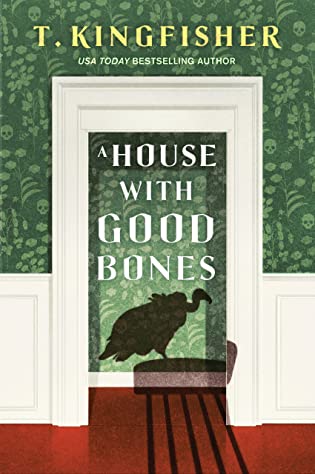 A House with Good Bones by T. Kingfisher
A House with Good Bones by T. Kingfisher Format: eARC
Source: supplied by publisher via Edelweiss
Formats available: hardcover, ebook, audiobook
Genres: fantasy, Gothic, horror, paranormal
Pages: 256
Published by Tor Nightfire on March 28, 2023
Purchasing Info: Author's Website, Publisher's Website, Amazon, Barnes & Noble, Kobo, Bookshop.org, Better World Books
Goodreads
A haunting Southern Gothic from an award-winning master of suspense, A House With Good Bones explores the dark, twisted roots lurking just beneath the veneer of a perfect home and family.
"Mom seems off."
Her brother's words echo in Sam Montgomery's ear as she turns onto the quiet North Carolina street where their mother lives alone.
She brushes the thought away as she climbs the front steps. Sam's excited for this rare extended visit, and looking forward to nights with just the two of them, drinking boxed wine, watching murder mystery shows, and guessing who the killer is long before the characters figure it out.
But stepping inside, she quickly realizes home isn’t what it used to be. Gone is the warm, cluttered charm her mom is known for; now the walls are painted a sterile white. Her mom jumps at the smallest noises and looks over her shoulder even when she’s the only person in the room. And when Sam steps out back to clear her head, she finds a jar of teeth hidden beneath the magazine-worthy rose bushes, and vultures are circling the garden from above.
To find out what’s got her mom so frightened in her own home, Sam will go digging for the truth. But some secrets are better left buried.
My Review:
“Mirror, mirror on the wall, I am my mother after all,” or so goes the sampler. Sam Montgomery is experiencing something even weirder and creepier – she’s watching her mother turn into her frightening and downright abusive grandmother – and it’s scaring them both to death.
Sam is worried that her mother is going through early-onset Alzheimer’s. Or some really bizarre stage of delayed grief over her grandmother’s death. Or that she’s just fallen off her trolley. And there’s just a bit of worry on Sam’s part that whatever is going on with her mother is genetic – and that someday it will happen to her.
Although channeling her mother – as she was before this whole thing started – wouldn’t not be all that terrible. Her mother was cool. Her grandmother, on the other hand, was cold as the grave even before she was put into one herself.
But still, Sam is an academic, specifically an archaeoentomologist. Research is what she does. So she does. Research, that is, into what is happening to her mother, when it started, how it’s progressing, and whether or not there is anything at all that Sam can do about it.
What she finds are a whole lot of secrets that really, truly should have remained buried. And that the house her mother inherited from Sam’s grandmother doesn’t just have good bones – it also has very strong teeth.
Escape Rating A-: I never expected to find a story at the intersection of gothic horror with “I am my mother after all” and “academic politics are so vicious because the stakes are so small” – but here is A House with Good Bones and that’s exactly where it sits. With a vulture circling over it.
At first, the horror is the kind that happens all the time. Sam comes home for a long visit when the dig she’s supposed to be on gets postponed, only to find that her mother isn’t quite right. As we reach middle age and later, if our parents are still with us at that point, we all come to realize that they aren’t quite what they used to be as time and possibly illness or tragedy take hold. As we see their mortality and we begin to feel our own.
And that’s what Sam fears most. At first. It’s a very real fear but it isn’t usually the kind that leads straight into gothic horror and then down into the depths of something even creepier. But this time it does. And does it ever!
As Sam digs deeper into the family history, she learns that that history wasn’t nearly as above-reproach or nearly as respectable – as her late Gran Mae made it out to be. There are some real skeletons in the family closet, and more than a few of them are still haunting the house.
Then again, so is Gran Mae.
Sam will have to dig deep, under the house and into her own reserves in order to lay all of the family skeletons to rest. One way or another.
Two things made this story for me. Actually three. One is that I will read anything T. Kingfisher writes, even in genres I don’t read much of – like horror. Second is that the initial horror is so very mundane and real, making it easy to get sucked into the story. Third is the character of Sam Montgomery herself, as in this book she represents the snarky, sarcastic and self-deprecating voice of the author.
Which is where that element of “academic politics” comes into the story. Sam is able to triumph over Gran Mae not because she’s all-knowing or all-powerful or any of those standard heroic tropes. Sam wins the day because she knows herself, in all her faults and all her virtues. Gran Mae’s insidious voice has no place of entry into Sam’s mind or heart because she’s survived so much worse in the bloody (not literally), hallowed (not exactly) halls of academe.
So I read – and loved – A House with Good Bones not for its horror but for Sam’s snarkcasm and the wry smiles and chuckles and occasional guffaws that it engendered. And it was terrific.

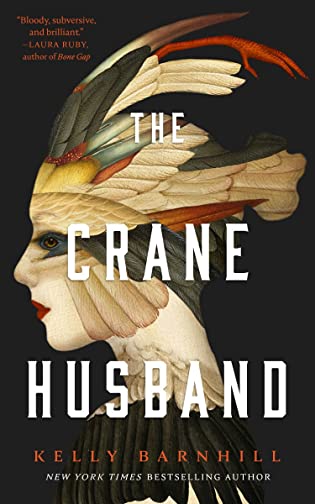 The Crane Husband by
The Crane Husband by 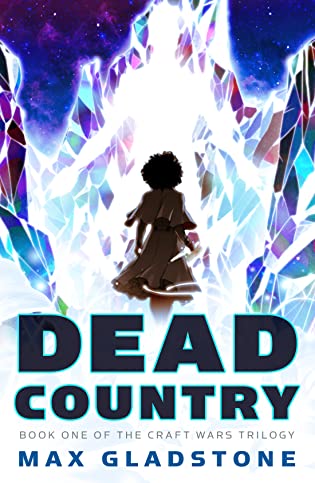 Dead Country (Craft Wars, #1) by
Dead Country (Craft Wars, #1) by 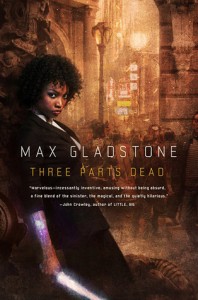 Escape Rating A: Once upon a time (back in 2012) there was a book titled
Escape Rating A: Once upon a time (back in 2012) there was a book titled 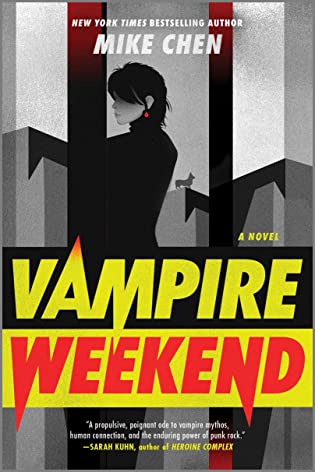 Vampire Weekend by
Vampire Weekend by 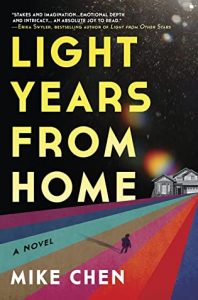 Escape Rating B+: Louise’s journey in Vampire Weekend is a combination of “no matter where you go, there you are” and “who do you want to be when you grow up?” Because Louise hasn’t. Grown up, that is. And that not-grown-up self has been dragging behind her and holding her back for decades. When Ian drops into her life – and all the landmines in her past that he unwittingly brings with him – she’s forced to reckon with who she once was and the baggage she’s still carrying from that person.
Escape Rating B+: Louise’s journey in Vampire Weekend is a combination of “no matter where you go, there you are” and “who do you want to be when you grow up?” Because Louise hasn’t. Grown up, that is. And that not-grown-up self has been dragging behind her and holding her back for decades. When Ian drops into her life – and all the landmines in her past that he unwittingly brings with him – she’s forced to reckon with who she once was and the baggage she’s still carrying from that person.
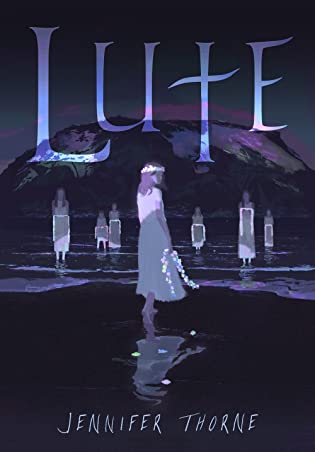 Lute by
Lute by 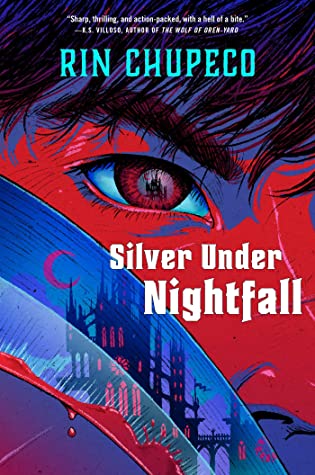 Silver Under Nightfall by
Silver Under Nightfall by 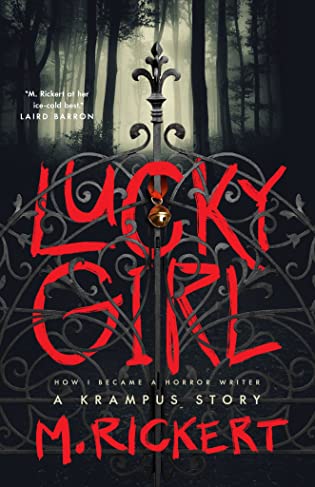 Lucky Girl: How I Became A Horror Writer: A Krampus Story by
Lucky Girl: How I Became A Horror Writer: A Krampus Story by 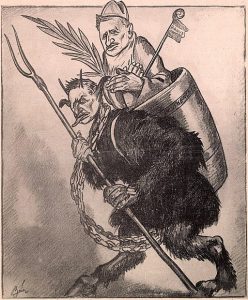
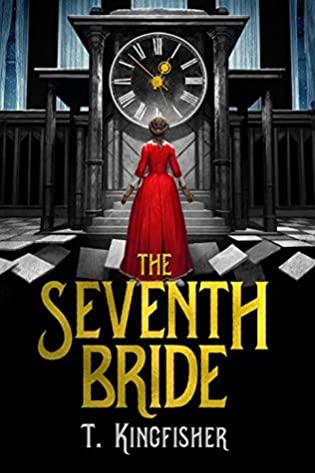 The Seventh Bride by
The Seventh Bride by 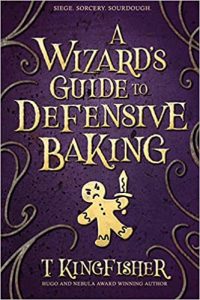 Just like Mona in
Just like Mona in 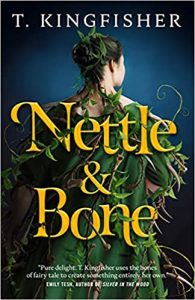 It also reads like a bit of a ‘dress-rehearsal’ for
It also reads like a bit of a ‘dress-rehearsal’ for 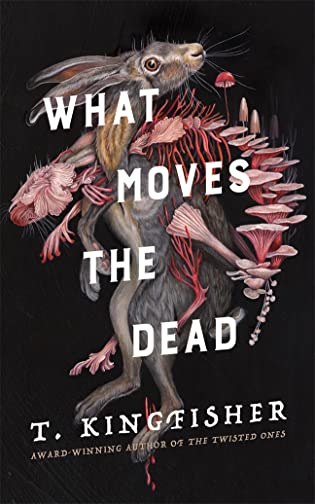 What Moves the Dead by
What Moves the Dead by 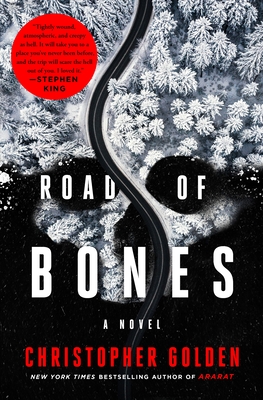 Road of Bones by
Road of Bones by 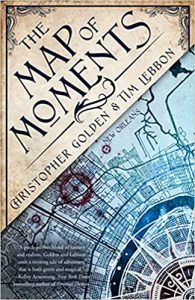 Escape Rating A-: I was willing to take this chilling drive into horror because of the author. Christopher Golden, along with Tim Lebbon, wrote one of the most haunting post-Katrina New Orleans stories to ever ride that slippery line between fantasy, history, myth and horror in
Escape Rating A-: I was willing to take this chilling drive into horror because of the author. Christopher Golden, along with Tim Lebbon, wrote one of the most haunting post-Katrina New Orleans stories to ever ride that slippery line between fantasy, history, myth and horror in